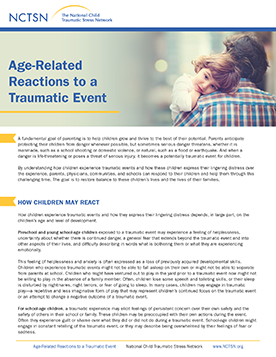
Age-Related Reactions to a Traumatic Event
Describes how young children, school-age children, and adolescents react to traumatic events and offers suggestions on how parents and caregivers can help and support them.
Public health is the science of protecting and improving the health of people and their communities. This work is achieved by promoting healthy lifestyles, researching disease and injury prevention, and detecting, preventing and responding to infectious diseases. Overall, public health is concerned with protecting the health of entire populations. These populations can be as small as a local neighborhood, or as big as an entire country or region of the world (Center for Disease Control and Prevention, 2020).
When public health emergencies occur, there is rapidly evolving information that may be confusing and lead to feelings of anxiety. In the event of an outbreak in your community, your first concern is about how to protect and take care of yourself, your children and your family. Knowing important information about the outbreak and learning how to be prepared can reduce your stress and help calm likely anxieties.
These resources will help you think about how an infectious disease outbreak or pandemic might affect your family— both physically and emotionally—and what you can do to help your family cope in times of public health emergencies.

Describes how young children, school-age children, and adolescents react to traumatic events and offers suggestions on how parents and caregivers can help and support them.

Offers parents and caregivers strategies and ideas for supporting children and teens during the holiday season. This fact sheet provides tips that parents can use to talk to their children and teens about how they are feeling and changes to holiday celebrations and traditions.
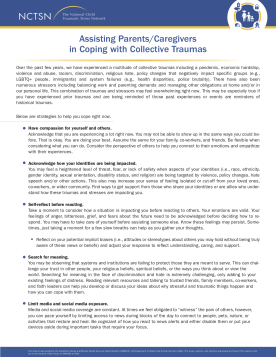
Offers strategies to help parents and caregivers cope with collective traumas. This fact sheet also provides guidance on what parents and caregivers can do to care for their children as they cope. Updated May 2024.
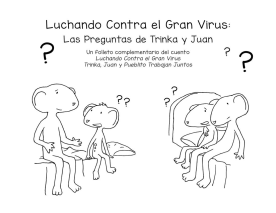
Ayuda a los niños más pequeños y sus familias a hablar sobre sus experiencias y sentimientos relacionados con COVID-19 y la necesidad de permanecer en casa. En el cuento, el coronavirus se ha extendido por todo Littletown, provocando cambios en la vida de todos.

Provides questions that Trinka and Sam have about the big virus and ways to answer those questions. This companion story includes common questions that children may have about COVID-19.
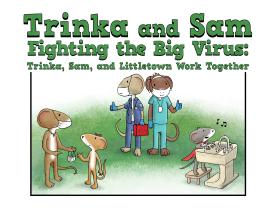
Helps young children and families talk about their experiences and feelings related to COVID-19 and the need to shelter in place. In the story, the coronavirus has spread to Littletown causing changes in everyone's lives.
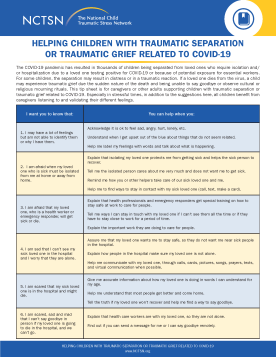
Offers information on how to talk with chlidren about traumatic separation or traumatic grief as it relates to the COVID-19 pandemic. COVID-19 has resulted in thousands of children being separated from loved ones who require isolation and/or hospitalization due to a loved one testing positive fo
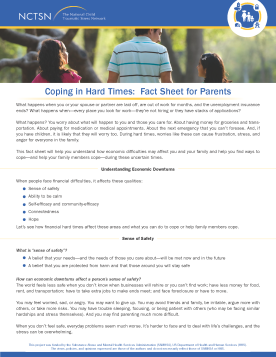
Helps parents understand how economic difficulties can affect their families, in terms of their sense of safety, connectedness, and hope. The fact sheet also helps families find ways to cope during uncertain times.
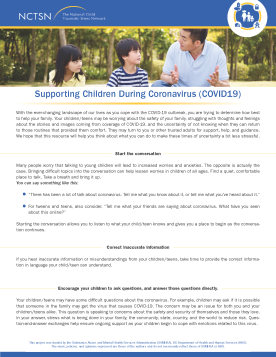
Offers ways to support children and talk to them about COVID-19.

Ofrece información para padres y cuidadores sobre los brotes de enfermedades infecciosas en su comunidad.
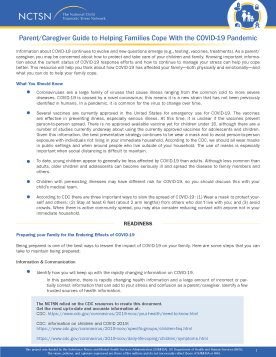
Provides information for parents and caregivers about infectious disease outbreaks in your community. Knowing important information about the outbreak and learning how to be prepared can reduce stress and help calm likely anxieties.
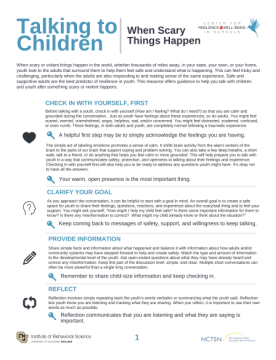
Offers guidance on talking with children and youth when scary things happen.